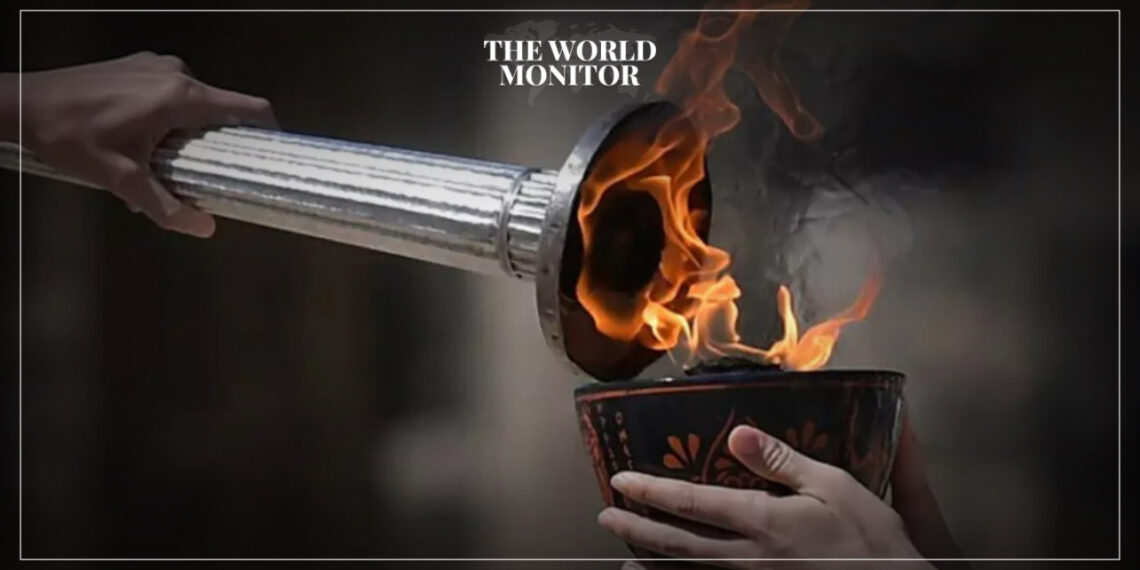In a timeless ritual, the flame for the Paris 2024 Olympic Games was ignited in ancient Olympia, marking the culmination of seven years of preparation for the upcoming event commencing on July 26.
The torch lighting ceremony, steeped in tradition, saw Greek actress Mary Mina embodying the role of the high priestess as she ignited the torch using a backup flame due to overcast skies, foregoing the customary parabolic mirror. This symbolic act signifies the commencement of a relay journey spanning Greece and France, ultimately leading to the illumination of the Olympic flame at the grand opening ceremony in Paris. Notably, Paris is set to host the summer Olympics for the third time, following its previous hosting in 1900 and 1924.
Addressing the global audience, International Olympic Committee (IOC) President Thomas Bach emphasized the significance of the Olympic flame as a beacon of hope amidst contemporary challenges. Against a backdrop of escalating conflicts and divisiveness, Bach underscored the universal desire for unity and optimism that the Olympics epitomize.
Despite geopolitical tensions, the IOC’s decision to permit Russian and Belarusian athletes to participate in the Olympics as neutral competitors, devoid of national symbols, has stirred controversy. This move, aimed at upholding the spirit of sportsmanship, has elicited mixed reactions, particularly from Moscow.
Furthermore, French President Emmanuel Macron’s call for a ceasefire in Ukraine during the Paris Olympics has sparked debate. While intended to promote peace during the games, concerns have been raised regarding potential implications for the ongoing conflict.
The concept of suspending hostilities during the Olympic Games, reminiscent of ancient Greek traditions, serves as a poignant reminder of the enduring legacy of the Games as a platform for fostering unity and promoting peace on a global scale.






